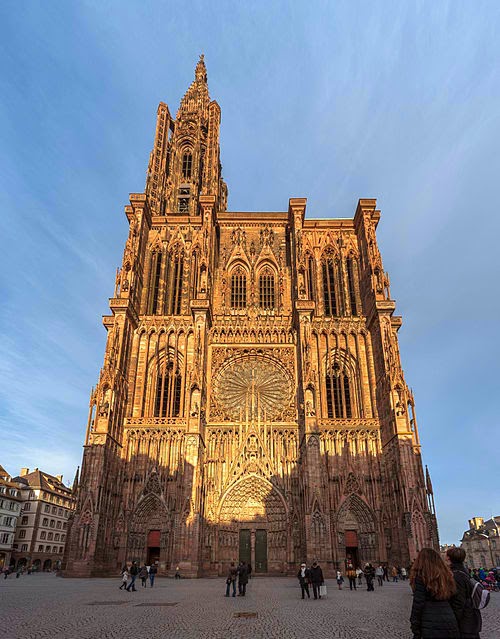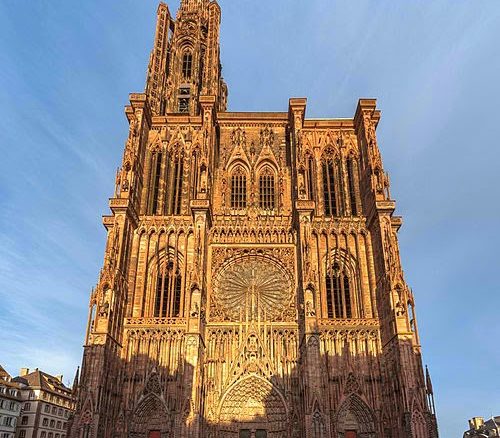Tucson: Goethe and the Art of Seeing
After the Tucson lecture and workshop, April 4-5, 2014, Friends of Jung, Tucson, Arizona ,
The Environmental Crisis: Birth of a New Consciousness?
 |
| Goethe:”sublimely towering, wide-spreading tree of God”
Strasbourg Cathedral, from Wikipedia
|
I am home after a weekend with a great group of people in Tucson. The members and participants are a varied, informed group with great hospitality and depth. Thank you!On Saturday one of the members asked a question that raised more questions. I had just related a story it is said Rudolf Steiner enjoyed telling, a story illustrating what Goethe called “disciplined imaginative observation.”
As a young man Goethe had an important experience at the cathedral of Strasbourg, using what he called art of seeing. He used this method not only to study plants but, in this case, the cathedral as well. After several days of climbing its tower over and over (to rid himself of vertigo) and sketching the cathedral from every angle, Goethe announced that the cathedral was incomplete. His friends studied the plans, then questioned him about how he knew. Goethe replied that the cathedral itself had told him. “I observed it so long and so attentively and I bestowed on it so much affection that it decided in the end to reveal to me its manifest secret” (Rudolf Steiner: An Introduction to His Life and Works, by Gary Lachman, p. 43).
The question in Tucson came from a man with a developed spiritual sense himself. Was Goethe communicating with the Spirit of the cathedral, or was he communicating with the Spirits of the designers and builders of this 800 year old cathedral?
I continue to ponder this question. Certainly for Goethe, and then for both Rudolf Steiner and Carl Jung, the imagination was a most important tool, imagination in concert, of course, with a disciplined thinking. For Jung this involved the development of the tool of active imagination. Steiner too saw use of the imagination in the style of Goethe’s art of seeing as key to meeting the world in any lively fashion. Truth resides in the meeting of the inner world and the outer, that liminal zone, or even, perhaps, as Jung would state, the transcendent. Is this zone humanity’s growing edge?
Who told Goethe the cathedral was incomplete? He says the cathedral itself did, but is this personification of material that can only be reduced to the idea of individualized Spirit, given how mired in materiality we have become? What are your own thoughts here?
